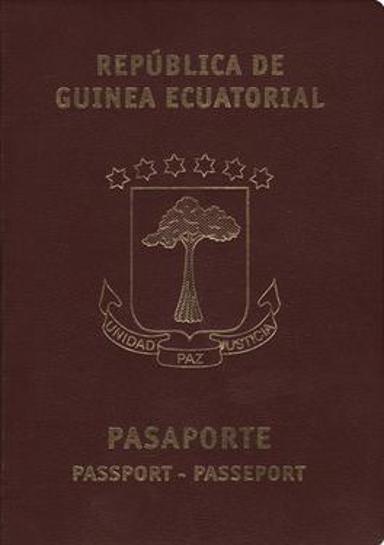
 Equatorial Guinea
Equatorial Guinea
 Equatorial Guinea
Equatorial Guinea





















 Albania
Albania Antigua and Barbuda
Antigua and Barbuda Australia
Australia Bahamas
Bahamas Bahrain
Bahrain Bhutan
Bhutan Botswana
Botswana Burkina Faso
Burkina Faso Colombia
Colombia DR Congo
DR Congo Ivory Coast
Ivory Coast Cuba
Cuba El Salvador
El Salvador Georgia
Georgia Guinea
Guinea India
India Indonesia
Indonesia Iraq
Iraq Kenya
Kenya Kyrgyzstan
Kyrgyzstan Lesotho
Lesotho Libya
Libya Malaysia
Malaysia Moldova
Moldova Mongolia
Mongolia Oman
Oman Pakistan
Pakistan Papua New Guinea
Papua New Guinea Qatar
Qatar Saint Kitts and Nevis
Saint Kitts and Nevis Sierra Leone
Sierra Leone South Korea
South Korea South Sudan
South Sudan Syria
Syria Tajikistan
Tajikistan Tanzania
Tanzania Togo
Togo Uganda
Uganda United Arab Emirates
United Arab Emirates Vietnam
Vietnam Zambia
Zambia Afghanistan
Afghanistan Algeria
Algeria Andorra
Andorra Argentina
Argentina Armenia
Armenia Austria
Austria Azerbaijan
Azerbaijan Belarus
Belarus Belgium
Belgium Belize
Belize Bosnia and Herzegovina
Bosnia and Herzegovina Brazil
Brazil Brunei
Brunei Bulgaria
Bulgaria Canada
Canada Chile
Chile China
China Costa Rica
Costa Rica Croatia
Croatia Cyprus
Cyprus Czech Republic
Czech Republic Denmark
Denmark Dominican Republic
Dominican Republic Egypt
Egypt Eritrea
Eritrea Estonia
Estonia Swaziland
Swaziland Fiji
Fiji Finland
Finland France
France Germany
Germany Greece
Greece Grenada
Grenada Guatemala
Guatemala Guyana
Guyana Honduras
Honduras Hungary
Hungary Iceland
Iceland Ireland
Ireland Israel
Israel Italy
Italy Jamaica
Jamaica Japan
Japan Jordan
Jordan Kazakhstan
Kazakhstan Kiribati
Kiribati Kosovo
Kosovo Kuwait
Kuwait Latvia
Latvia Lebanon
Lebanon Liberia
Liberia Liechtenstein
Liechtenstein Lithuania
Lithuania Luxembourg
Luxembourg Mali
Mali Malta
Malta Marshall Islands
Marshall Islands Mexico
Mexico Monaco
Monaco Montenegro
Montenegro Morocco
Morocco Myanmar
Myanmar Nauru
Nauru Netherlands
Netherlands New Zealand
New Zealand Niger
Niger North Korea
North Korea North Macedonia
North Macedonia Norway
Norway Panama
Panama Paraguay
Paraguay Peru
Peru Poland
Poland Portugal
Portugal Romania
Romania Russia
Russia San Marino
San Marino Saudi Arabia
Saudi Arabia Serbia
Serbia Slovakia
Slovakia Slovenia
Slovenia Solomon Islands
Solomon Islands Somalia
Somalia South Africa
South Africa Spain
Spain Sudan
Sudan Suriname
Suriname Sweden
Sweden Switzerland
Switzerland Taiwan
Taiwan Thailand
Thailand Tonga
Tonga Trinidad and Tobago
Trinidad and Tobago Turkey
Turkey Turkmenistan
Turkmenistan Ukraine
Ukraine United Kingdom
United Kingdom United States
United States Uruguay
Uruguay Uzbekistan
Uzbekistan Vanuatu
Vanuatu Vatican
Vatican Venezuela
Venezuela Yemen
YemenEquatorial Guinea, located in Central Africa, is a small country known for its diverse culture and rich history. With a population of over 1.4 million people, it is one of the smallest countries in continental Africa. The official languages are Spanish, French, and Portuguese, reflecting its colonial history. The country’s culture is a unique blend of local traditions and colonial influences, with music and dance playing a significant role.
The climate in Equatorial Guinea is tropical, with high humidity and temperatures ranging from 75°F to 91°F year-round. The country experiences two rainy seasons, from February to June and from September to December, with the heaviest rainfall occurring in the mainland region.
Equatorial Guinea’s economy is heavily reliant on its oil reserves, which account for over 90% of its GDP. Despite its wealth in natural resources, income distribution is highly unequal, with a significant portion of the population living in poverty. The country is also known for its beautiful landscapes, including pristine beaches, tropical rainforests, and diverse wildlife, making it a potential destination for eco-tourism.
Overall, Equatorial Guinea is a country of contrasts, with its rich natural resources and cultural heritage juxtaposed with its economic challenges.